Recounting the progression of his illness, Mr. Jason Maman, living in the US (now 50 years old), said that around March 2018, he began to have stomach pain and frequent bloody stools. This condition continued for nearly a year after that and gradually became more severe.
Thinking he had hemorrhoids and hoping it would go away on its own, despite having unusual symptoms, he delayed going to the doctor because he thought it was a waste of time and money.
By the end of 2019, when he could no longer bear the severe abdominal pain, Mr. Jason decided to go to the doctor and was diagnosed with stage 3 colorectal cancer at the age of 45.
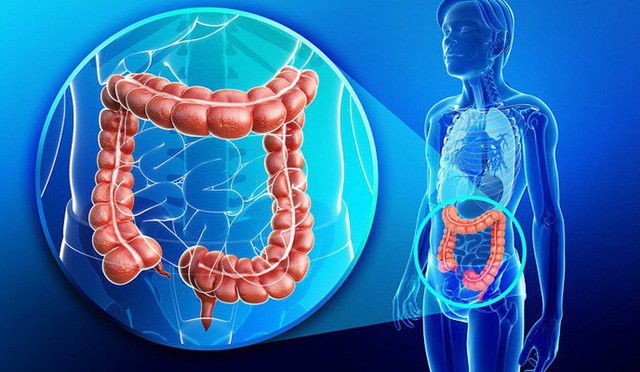
Illustration photo
When he was diagnosed with stage 3 colon cancer, Mr. Jason was extremely shocked. He shared: “I could not believe that I had cancer. I also deeply regretted not going to the doctor as soon as my body started showing abnormal signs. If I had detected the tumor in my colon earlier, it would not have progressed to the severe stage.”
Doctors immediately admitted Jason to the hospital for treatment. Jason then underwent surgery to remove the tumor and had a colostomy placed. Jason also had to undergo 12 more rounds of chemotherapy and 33 rounds of radiation therapy.
After several years of treatment, Mr. Jason's health has now stabilized. His life has almost returned to normal.
“Through my own case, I also want to tell everyone to go see a doctor as soon as they notice any unusual signs in their body. The examination only takes 1-2 hours but it is very helpful in the treatment process,” said Mr. Jason.
8 early warning signs of rectal cancer, absolutely do not ignore
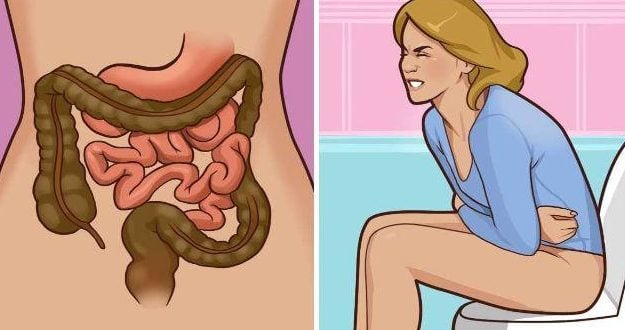
Illustration photo
Stomach-ache
This is a common symptom in people with colon cancer. The pain is often unclear, sometimes intense, sometimes dull, similar to the symptoms of colitis.
Prolonged digestive disorders
Colon cancer manifests in all parts of the digestive tract. Common symptoms include heartburn, bloating, flatulence, indigestion, loss of appetite, etc. This condition, if prolonged, can cause fatigue and weight loss.
Bloody stools
Blood in the stool is a common symptom of colon cancer, however many people confuse this symptom with hemorrhoids and let the disease develop for too long, making the condition more and more serious.
Change in bowel habits
As the colon tumors grow larger, they produce secretions (waste) that continuously stimulate the intestines. This reaction causes the patient to defecate more often. The more severe the disease, the more frequent the defecation, thereby changing your daily bowel habits.
Passing small stools
If you see a lot of small stools when you go to the toilet, it could be a warning sign of colon cancer. This symptom appears due to some obstructions in the excretion process that cause the shape of waste in the body to change. These obstructions can be a swelling that forms at the end of the large intestine.
Unusual weight loss
If you suddenly lose weight without exercising or dieting, you should not ignore it. It could be a sign of cancer, especially colon cancer, stomach cancer or other parts of the digestive tract.
Fatigue and weakness
Fatigue due to colon cancer is often associated with anemia due to bloody stools. In addition, patients also feel exhausted even when resting, the body quickly weakens without a clear cause.
Anal pain and difficulty controlling
When the tumor appears with a large size, it will cause the anus to "stress" because it has to maintain regular contractions. At this time, the anal sphincter is overloaded and weakened, leading to loss of control. At this stage, the patient will have more bloody stools, and the disease will also progress to a more serious level.
Who is at risk for colorectal cancer?
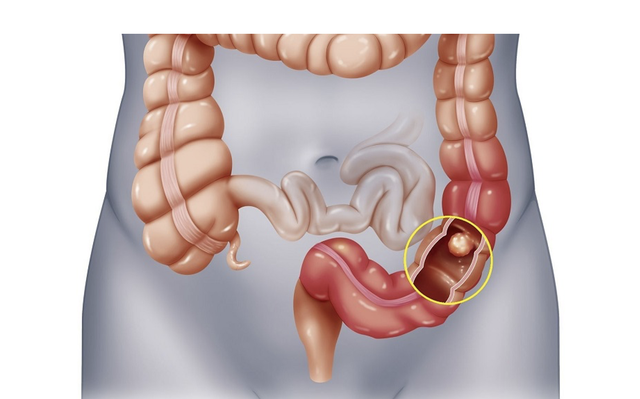
Illustration photo
Anyone can get colorectal cancer, however, the following people have a higher risk of getting the disease than normal, including:
- Patients are overweight, obese, and cannot control their weight. In particular, men are at higher risk of getting the disease.
- People who do not or rarely participate in physical activities.
- Patients have unscientific diets such as regularly eating greasy foods, foods containing a lot of saturated fat,...
- People who smoke or drink alcohol regularly also have a higher risk of colon cancer and some other types of cancer than normal.
- Patients over 50 years old.
- People with family members with a history of colon or rectal cancer or people with a history of ulcerative colitis.
What to do to prevent colon cancer?
There is no way to completely prevent colorectal cancer. But doctors have come up with many ways for us to effectively prevent colorectal cancer, including:
- Limit fried foods and red meat
- Eat foods high in fiber
- Limit alcoholic beverages
- Supplement adequate Vitamin D
- Exercise and play sports regularly
- Keep weight in a balanced range
- No smoking
- Regular colon cancer screening.
Source










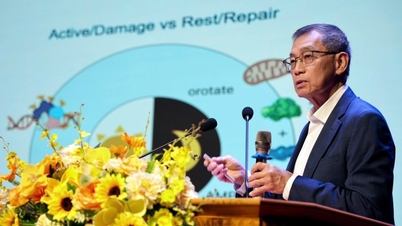

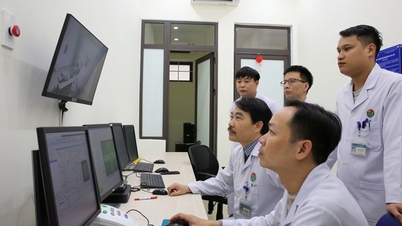






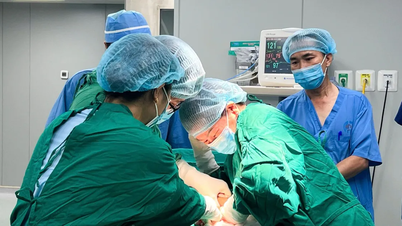

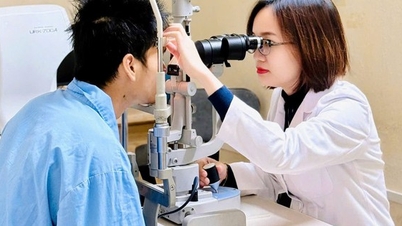































































































Comment (0)